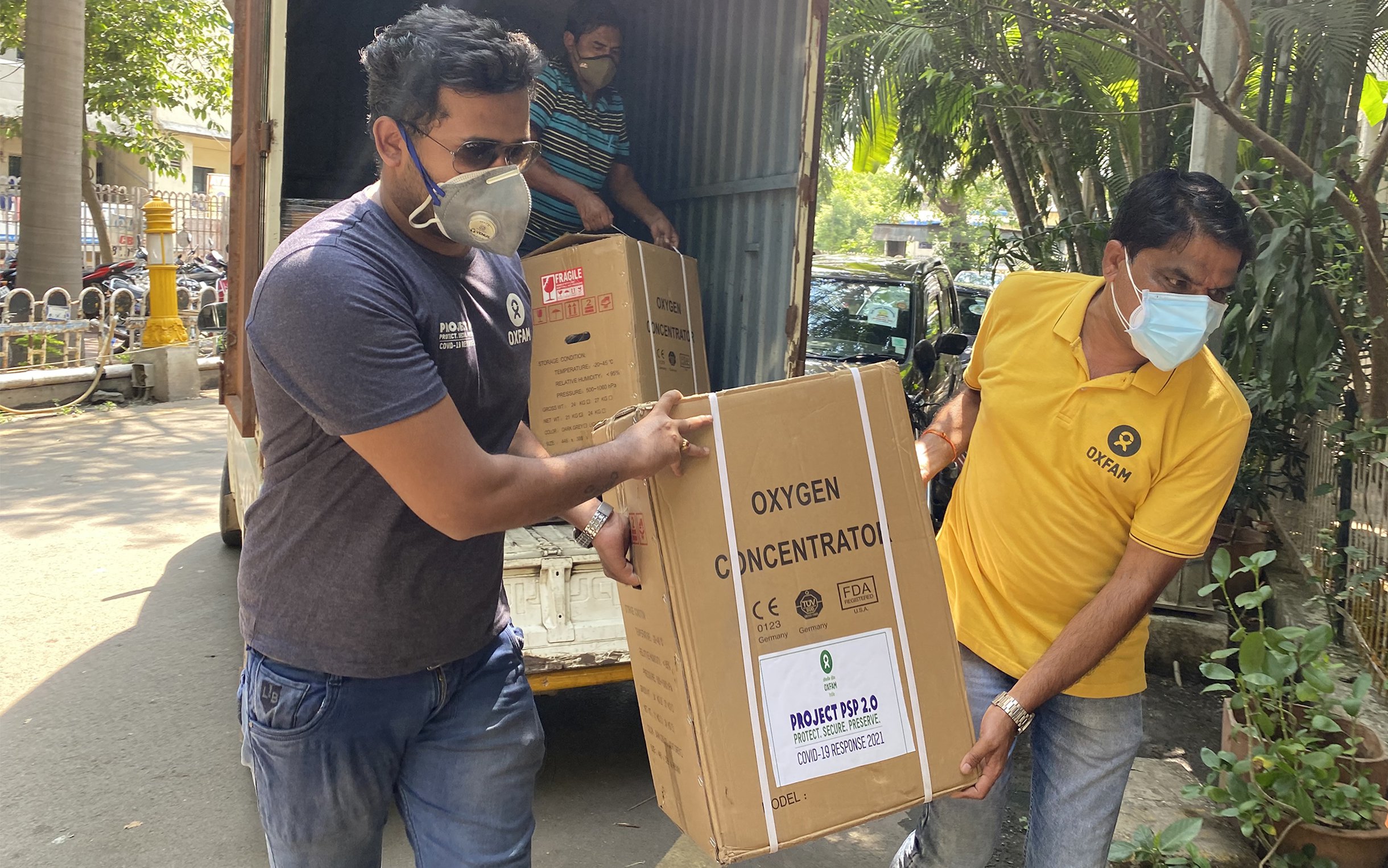Response to surge in COVID-19 cases continues amid concerns for people living in poverty
In response to the ongoing severe medical crisis in India, Oxfam India has deployed teams to five of its worst-hit states. They have already started distributing face masks, hand sanitizer, and other protective equipment in parts of Maharashtra following a request from state health authorities. In the coming days Oxfam is distributing protective equipment to 500 frontline health workers in Maharashtra, Delhi, Karnataka, Uttar Pradesh, and Chhattisgarh.
“Our immediate priority is to supply hospitals and health workers with medical equipment and personal protective equipment so they can continue treating those who are sick,” says Oxfam India’s CEO Amitabh Behar. Oxfam India is procuring oxygen tanks, beds, digital thermometers, and other medical equipment to help government hospitals where supplies are desperately low.
Concerns for the most vulnerable
Poverty makes people more vulnerable to COVID-19, particularly those working in informal jobs without any unemployment benefits, according to Oxfam India’s CEO Behar. “They earn their livelihood by a daily wage,” he says. “Now they are sleeping hungry, they have lost their livelihood, and can’t pay rent for shelter. It’s a double whammy for the poor. More than 700,000 to a million people are in this situation.”
Since the first outbreak of COVID-19 last year, Oxfam India has been providing food, protective equipment, safety kits, cash assistance, and livelihoods training across 15 states. Oxfam India is committed to reaching the most vulnerable and marginalized groups including Adivasis, Dalits, Muslims, and women and girls.
The sudden disruption caused by lockdowns has had a severe impact on daily wage laborers, migrants, and informal workers who are struggling to feed themselves and their families. The sudden spike in COVID-19 cases in states like Gujarat, Maharashtra, and Delhi has stranded many migrant workers in railway stations, bus terminals, or at their places of work. Oxfam’s field teams report that these groups, who are often excluded from government support, need food and handwashing facilities to reduce their chances of becoming infected.

“To avoid a worse humanitarian disaster, it is vital we stop the spread,” Behar says, “We are preparing handwashing stations and public health awareness campaigns to help people stay safe. We are particularly concerned about migrant workers and other marginalized groups who may be stranded without money in the open and will be hit hardest by movement restrictions, lack of transport, and economic shock. Oxfam India is preparing to provide food rations and cash assistance to help the most vulnerable people to survive the coming weeks.”
Oxfam is urging the government of India to take specific steps to provide shelter, testing, cash, and measures to reduce the risk of domestic violence against women and girls. Internationally, Oxfam is continuing to urge governments and pharmaceutical companies to provide a People’s Vaccine: a patent-free, mass produced, and fairly distributed vaccine available free of charge to everyone, rich and poor alike.
After the US Trade Representative announced last week that the US would support a temporary waiver of intellectual property rules at the World Trade Organization, Oxfam is urging governments and companies to share the vaccine technology and scale up manufacturing so everyone, everywhere can have access to vaccines.
